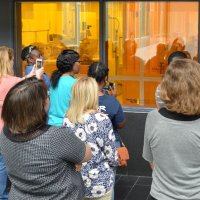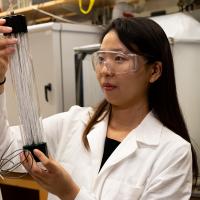When Amy Bonecutter-Leonard was a second-semester undergraduate at the Georgia Institute of Technology, she applied for a work-study job in the cleanroom at the Microelectronics Research Center (MiRC). There, she…
Quantum sensors detect the smallest of environmental changes — for example, an atom reacting to a magnetic field. As these sensors “read” the unique behaviors of subatomic particles, they also dramatically improve…
To avoid catastrophic climate impacts, excessive carbon emissions must be addressed. At this point, cutting emissions isn’t enough. Direct air capture, a technology that pulls carbon dioxide out of ambient air, has…
The University System of Georgia Board of Regents has approved a new Neuroscience and Neurotechnology Ph.D. Program at Georgia Tech.The interdisciplinary degree is a joint effort across…
Robots that can run, jump, and even talk have shifted from the stuff of science fiction to reality in the past few decades. Yet even in robots specialized for specific movements like running, animals are still able to…
In a group of papers released May 1 in the journal Nature, scientists are one step closer to a whole-body map of the body’s cellular responses to endurance exercise — identifying striking “all tissue effects” of…











